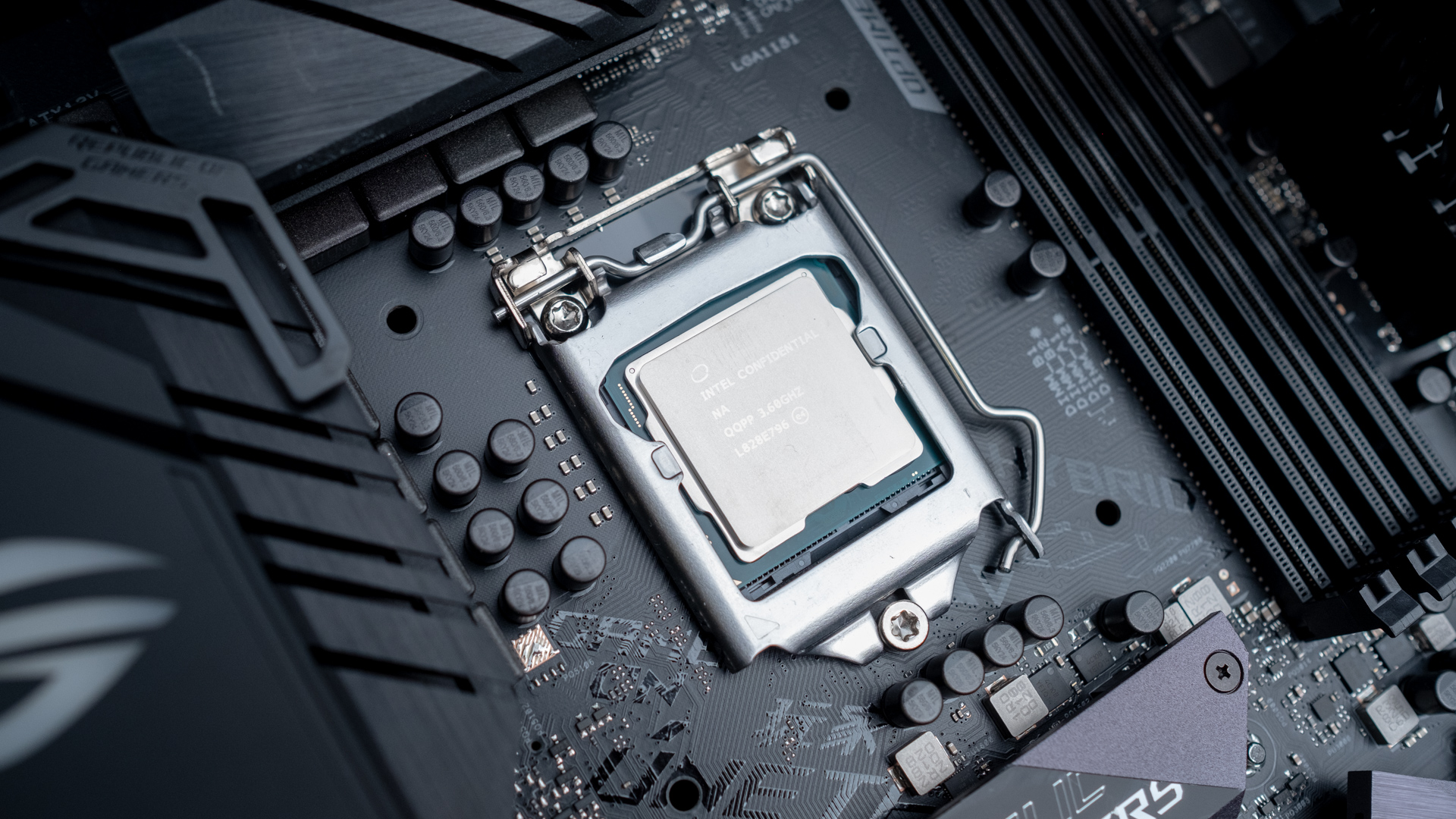Intel may have a 6-core Comet Lake S CPU to challenge AMD in desktops
A Core i5 processor with hyper-threading

Intel may have moved onto 10nm process nodes for its Ice Lake processors (CPUs), but it looks like 14nm is still where its focus is for desktop. And, it may not be such a bad thing, as a recent leak has shown what could be a new Intel Core i5 CPU with 6 cores and 12 threads using the new Comet Lake-S architecture, HotHardware reports.
The leak shows an Intel CPU tested on an H400-series motherboard, one we understand to be designed for desktop Comet Lake-S processors using the LGA 1200 socket. Beyond the chip's 6 cores and 12 threads, it's shown having a base clock speed of 2.0GHz and a total of 12MB of L3 cache and 3MB of L2 cache.
- Here are the best processors
- See the big CPU battle: AMD vs Intel
- Learn about AMD's Zen 2
New life for 14nm
Currently, Intel has already introduced 10nm Ice Lake CPUs and 14nm Comet Lake CPUs for mobile devices, but we haven't seen desktop versions of these CPUs show up yet. And, while it's unfortunate that we're seeing yet another 14nm chip for desktop, Intel appears to be upping the ante to better challenge AMD this time.
AMD's big push at the introduction of Ryzen, and now with Ryzen 3000, has been dazzling core counts and multi-threading to boost performance that much further. If Intel introduces a 6-core/12-thread Intel Core i5, as this leak suggests, it could be better competition for AMD's chips than past Core i5 processors, which lacked hyper-threading.
The 2.0GHz clock speed may be a concern, but the leaked chip is likely an engineering sample that's not running at the speeds production models will hit. Running at a higher speed could help it compete with something like the Ryzen 5 3500, which also boasts 6 cores and runs at a 3.6GHz base clock speed (though has a much heftier 32MB of L3 cache).
When it comes to the top of the pack, though, we're still waiting for the 10-core Comet Lake CPU spotted in earlier leaks.
- See the leaked Intel Comet Lake Core i3 with hyper-threading
Get daily insight, inspiration and deals in your inbox
Sign up for breaking news, reviews, opinion, top tech deals, and more.
Over the last several years, Mark has been tasked as a writer, an editor, and a manager, interacting with published content from all angles. He is intimately familiar with the editorial process from the inception of an article idea, through the iterative process, past publishing, and down the road into performance analysis.
